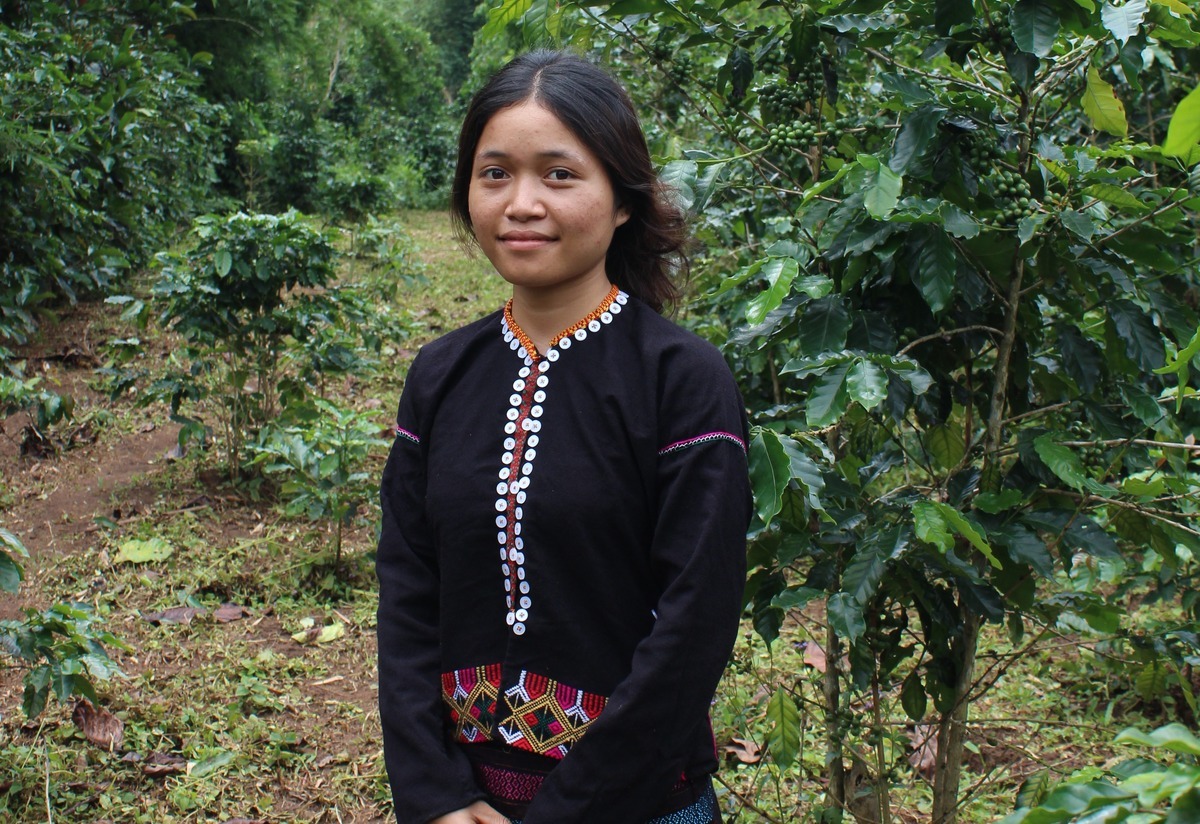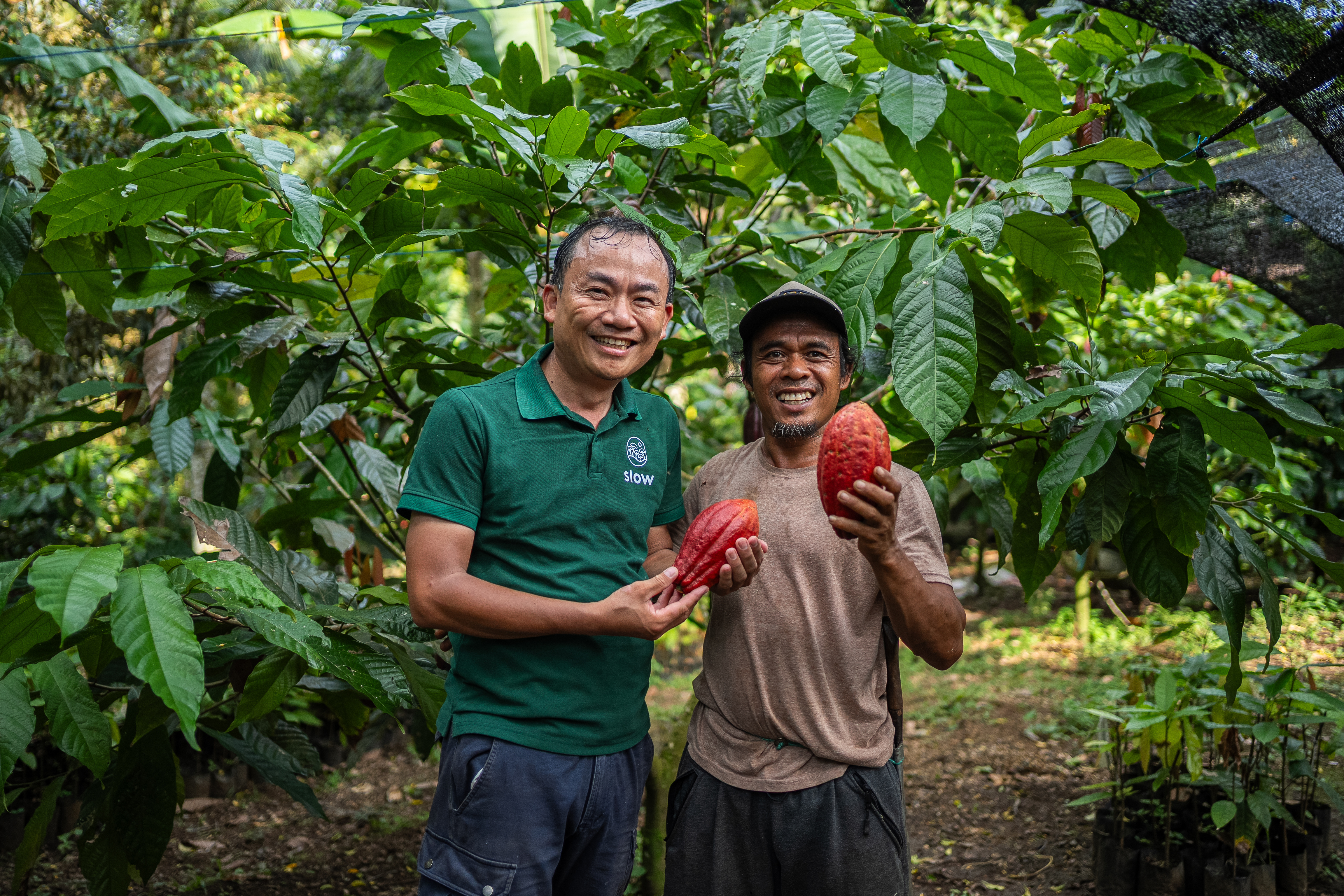What happens when coffee meets a forest?
Climate pressures are rising. In one Vietnamese coffee region, farmers are turning to agroforestry to secure yields, restore soils, and keep supply...
Sep 18, 2024 - 2 min read

Our Field Manager, Vilaphong Santaincee, is supporting Mrs. Soy, a local coffee farmer in Laos. © Slow/Saosavanth Ketmala
Take Slow, for example. We're heavily invested in regenerative farming on the Bolaven Plateau in Laos and in Quang Tri, Vietnam—regions known for their biodiversity but also facing serious environmental threats.
Regenerative farming isn't something you can implement from a comfortable office in Berlin, Copenhagen, or London. You've got to be there, understand the challenges and work with the community. Sadly, not many companies are really stepping up to share the cost or energy of this transition.
Over 90% of our 220-person team is on the ground in the Global South, working side by side with smallholder farmers. In Laos, especially in Pakse and Paksong, we've got a team of 121 people right there, testing regenerative techniques and providing hands-on support. And yet, back in Europe, we've only got 12 employees.

Our team monitoring tree survival rates in Phou Luang, Laos. © Slow/Saosavanth Ketmala
Here's when things get tricky: a lot of companies talk about regenerative farming like it's a magic solution, but how many are really putting in the work where it matters? For some, it's more about sourcing trips and good PR than actually making an impact.
The term "regenerative" has, unfortunately, drifted into a grey zone where companies claim engagement without much real action.
The truth is regenerative farming has huge potential. Some studies even suggest it could halve greenhouse gas emissions from the food system by 2030. But introducing these practices is risky and expensive for smallholder farmers. They're already dealing with the daily struggle of making ends meet, especially with climate change threatening their crops.

Health checks for our dedicated farm workers in Lakkao, Laos. © Slow/Saosavanth Ketmala
What we've learned at Slow is that this transition isn't going to happen unless those further up the supply chain—like us, and other companies—take on more of the cost and risk. Reports like the one from the World Business Council for Sustainable Development back this up, highlighting how farmers are often left to bear the burden of these changes.
In the coffee community we work with in Laos and Vietnam, we see firsthand how tough it is. Farmers are dealing with soil degradation, fluctuating markets and a lack of access to the training they need. That's why our approach is to provide direct support—training, tree seedlings, advance payments, even emergency funds. The goal is to help smallholders manage the risks and improve their livelihoods.
A recent report showed that less than 4% of companies even calculate income gaps for farmers, let alone address them. At the end of the day, it's about more than just slapping the word "regenerative" on a product. It's about making real, lasting changes where it counts most.

Climate pressures are rising. In one Vietnamese coffee region, farmers are turning to agroforestry to secure yields, restore soils, and keep supply...

Earth Day reminds us that change doesn't have to wait for sweeping policy or perfect systems. Often, it starts with something as simple—and as...

Big news from Slow. African Coffee Roasters is now part of the Slow family. And this isn’t just an acquisition—it’s a major step forward in how...